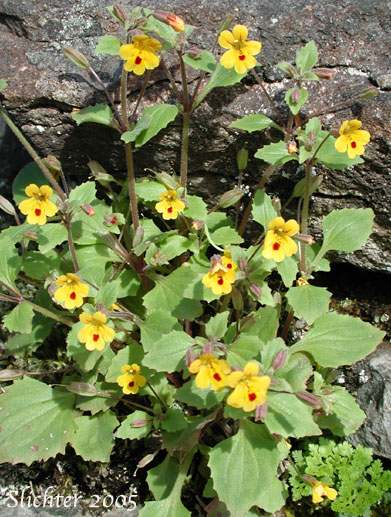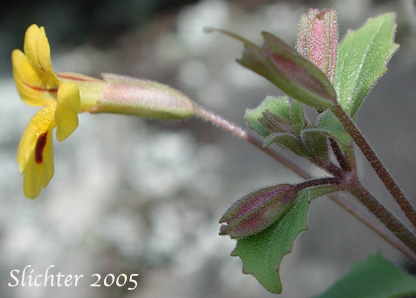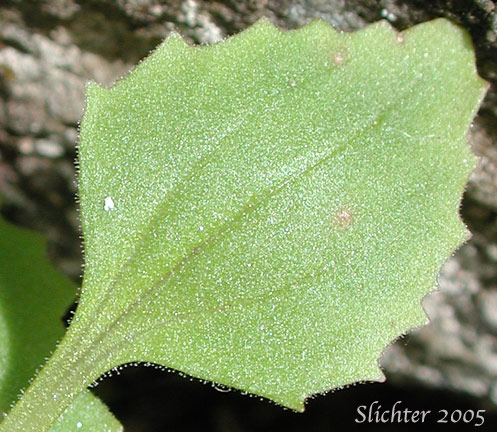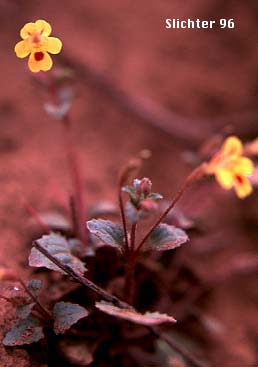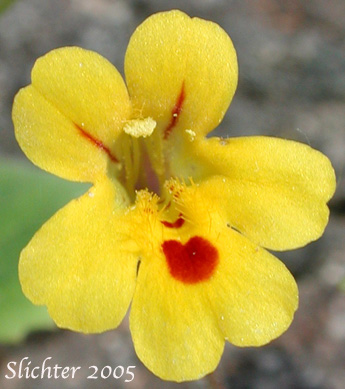 The
photo at right shows a close-up of the flower of chickweed monkey flower as
seen along the Angels Rest Trail in the Columbia River Gorge.............May
12, 2005.
The
photo at right shows a close-up of the flower of chickweed monkey flower as
seen along the Angels Rest Trail in the Columbia River Gorge.............May
12, 2005.
Characteristics:
Chickweed monkey flower is a petite, annual monkey flower. Its stems range from simple to freely branched, and arise from 4-30 cm in height. The leaves range from 0.5-2 cm long and are obtuse to rounded in shape. The margins are lightly to coarsely toothed, and the blade is 3-5 nerved.
The flowers have long pedicels and the calyx is mostly smooth (occasionally lightly glandular). The 3 upper calyx lobes are short with sharper points while the 2 lower lobes are longer with rounded tips. The tubular corolla is yellow, 8-14 mm long, with a large reddish-brown spot at the base of the lower lip. The corolla is 2-lipped with the middle lobe of the lower lip larger than the others and flexed downwards.
Chickweed monkey flower may be found on vernally moist, moss-covered banks and cliffs.
Chickweed monkey flower may be found from southern British Columbia south through and west of the Cascade Mts. to northern California.
